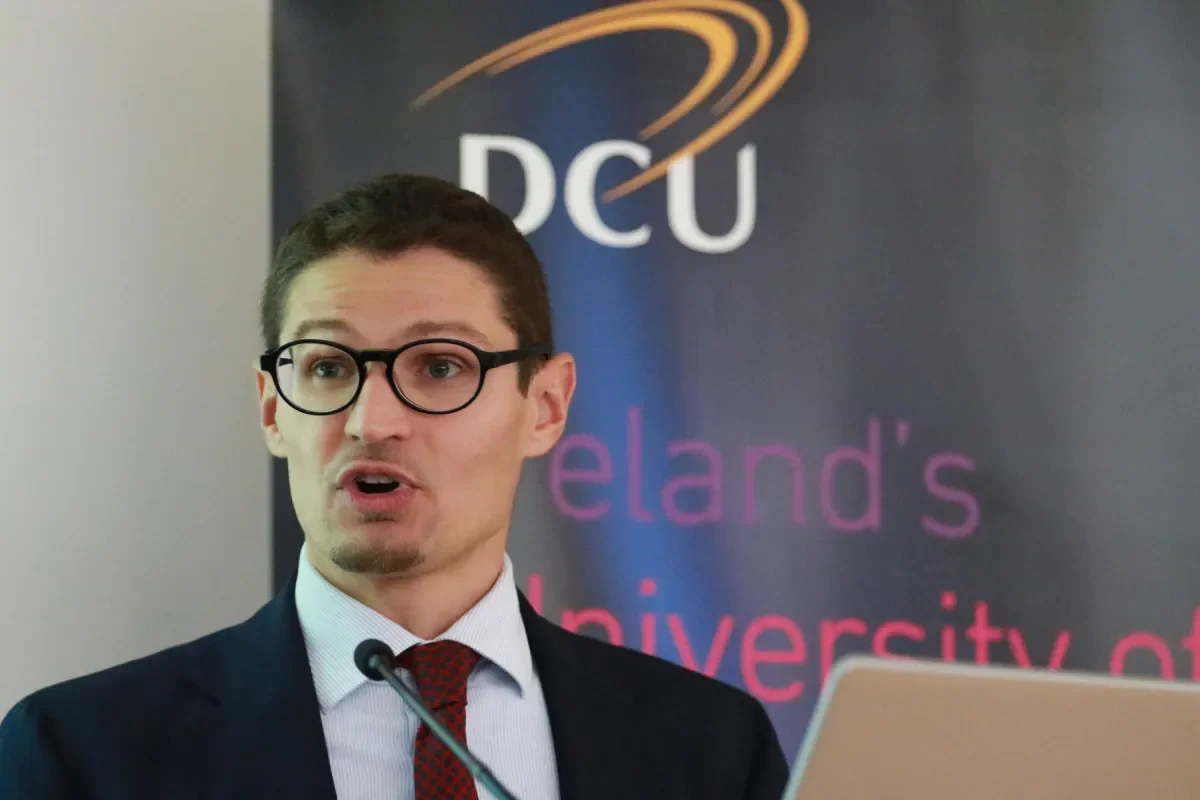

Economic Policy responses to COVID-19 marks a huge turning point for European integration according to leading DCU academic
A new report authored by DCU Professor Federico Fabbrini states that the measures taken by EU Institutions and member states to tackle the economic damage of COVID-19 marks a huge turning point in the process of European integration.
The views are contained in the report "Europe's Economic and Monetary Union Beyond COVID-19" which studies the consequences of COVID-19 and the responses to it on Europe’s Economic and Monetary Union. It was commissioned by the Department of Finance of Ireland and the Presidency of the Eurogroup.
It highlights, in particular the establishment of the Next Generation European Union (NGEU), a €750M Recovery Fund and its long-term impact on the structures and governance processes of the European Union and the Eurozone.
Fabbrini, a full Professor of European Law at DCU’s School of Law & Government and founding Director of the DCU Brexit Institute argues that the actions undertaken by the EU are unprecedented.
He stresses that there are significant implications for the European Economic and Monetary Union (EMU). In particular, NGEU balances the EU centralized monetary policy with a centralized fiscal capacity, and paves the way for the introduction of new EU taxes, which will be used to repay the funds the Commission is borrowing on the capital markets.
The report examines the number of policies deployed by the EU institutions and the member states to contain the socio-economic damages of the pandemic – in particular the EU recovery fund, the NGEU, connected to the EU 2021-2027 Multiannual Financial Framework (MFF), designed to kick-start the EU economy after the pandemic.
In contrast to past funding programmes, the NGEU is to be resourced by resorting to the financial markets and to be disbursed to the member states primarily in the forms of grants rather than just loans. Moreover, NGEU money will be funded through new EU taxes, rather than member states’ budgetary transfers.
The research paper considers the mid to long term consequences of the measures adopted for the future of EMU and whether a return to normal post-COVID-19 would be feasible. The question also arises as to whether recent developments could facilitate further EMU deepening and if new EU constitution reforms will be needed to support the recent centralisation of fiscal powers. As such, the report provides guidance also for the incoming Conference on the Future of Europe.
To download a copy click here
